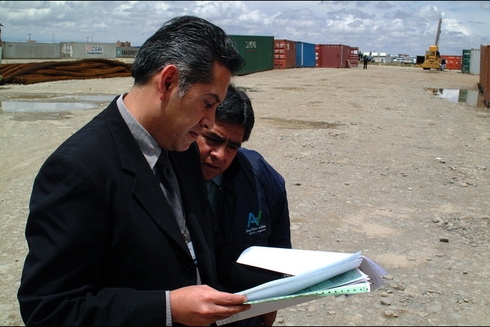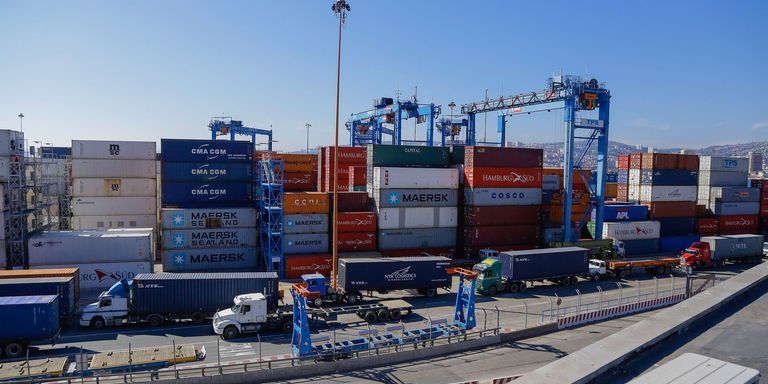
Whether the goal is to reduce poverty, address resilient development, or bolster growth, the IDB Group develops innovative partnerships with a wide range of actors. These include private companies, corporate foundations, academic institutions, and public sector institutions in Latin America and the Caribbean and around the world. These partners rely on our experience and comparative advantages in the region to help advance their development objectives.
Our specialized knowledge of the region gives us a significant edge in identifying needs and opportunities and creating synergies among development partners. This expertise makes the IDB Group the partner of choice for addressing the region’s development challenges.

The IDB Group administers a large number of single-donor trust funds, many of which have been created to pursue targeted objectives on critical themes and issues. These trust funds are key to the effectiveness of IDB programs throughout Latin America and the Caribbean region, providing resources to supplement the Bank’s lending with targeted grants and other financial instruments. They enable the Bank to creatively leverage funds from multiple sources to craft innovative solutions to key development challenges. Donor trust funds at the IDB Group are a critical source of grant financing for technical cooperation and investment grants, as well as know-how, expertise, and knowledge transfer.

The IDB Group’s thematic multi-donor funds broadly reflect the region’s priorities and the Bank’s development strategies. Each fund focuses on a specific area of development need – from water and sanitation and resilient development to poverty reduction, trade development, the knowledge economy, disaster prevention, and gender equality. These multi-donor thematic funds have emerged as an important tool for generating grant financing opportunities and innovative approaches to development.

IDB Group donors often provide support in the form of Project-Specific Grants (PSGs) and investment grants as additional sources of grant financing. These contributions are administered by the Bank on behalf of one or more donors, both public and private, to finance specific IDB Group projects, programs, or other activities benefiting borrowing member countries. PSGs offer a level of flexibility that enables the IDB Group and the donor to collaborate in project design and implementation, with a particular focus on scaling successful interventions.

The IDB Group is a key partner with other development agencies and Multilateral Development Banks (MDBs) in several global thematic funds for which the Bank is an implementing agency. As such, the IDB Group is able to draw upon them to co-finance and/or leverage resources to assist its donor partners in harmonizing their activities toward important development goals.

The IDB Group partners with co-financiers to provide grants or reimbursable funds through two modalities: parallel and joint co-financing. Parallel co-financing is where the IDB and one or more co-financiers make separate grants or loans that complement each other in financing a larger common program, with the co-financier managing its own execution, disbursements, and evaluation mechanisms. On the other hand, joint co-financing is where the IDB Group provides the co-financier with monitoring services for the co-financier’s loan or grant.

Following the recommendations of the G20-sponsored Independent Review of MDBs’ Capital Adequacy Frameworks, the IDB Group has been actively working to expand its lending capacity through BSO instruments. This suite of instruments includes hybrid capital (SDR or hard currency-denominated), exposure exchange agreements, and credit substitution guarantees.

Partners can join the IDB in transactions aiming at providing credit enhancement to the issuance of sovereign sustainable debt. The issuance can be used in debt-swaps transactions that involve exchanging a portion of a developing country’s external debt for new debt with more favorable financial terms. The savings generated from this financial transaction are specifically directed toward supporting sustainable actions and initiatives within the debtor country. For example, in 2023, the IDB enabled the largest debt-for-nature conversion in history, allowing Ecuador to generate savings and mobilize an estimated $450 million for conservation in the Galápagos Islands.

Key to the IDB Group’s efforts and goals are the knowledge, ideas and opportunities for technology transfer that are often the products of its strategic relationships with both public donors and private sector enterprises. For example: IDB Group partners with universities to generate joint knowledge products. In addition, these partnerships and collaboration can bring with them new opportunities to build greater public awareness and support for development initiatives in the region. These soft resources that many partners bring to the table in the form of visibility and knowledge are vitally important to elevate the value and effectiveness of IDB Group projects.
We maintain effective internal controls over financial reporting for the partnership resources under our administration. The combined trust fund financial statements are also audited annually by an independent accounting firm.
We invite you to review the latest audited combined trust fund financial statements for 2022 and 2023 to gain insights into our financial performance and management practices.
Interested in improving lives in Latin America and the Caribbean?
Let's collaborate on joint initiatives to unlock the region's full potential.
Explore our overseas offices
Our Asia office serves as the gateway for member countries, private sector entities and civil society looking to improve lives in Latin America and the Caribbean.
Our European office fosters strategic alliances with EU member countries, Israel, international organizations, NGOs, and European-based public and private entities.
Learn about our financial support for public-sector initiatives in the region.
Explore our financing for private-sector projects in Latin America and the Caribbean, and other resources.
Approved by our member countries, the Strategy guides our mission and sets the priorities for our work. Learn about its components and how we monitor it.

